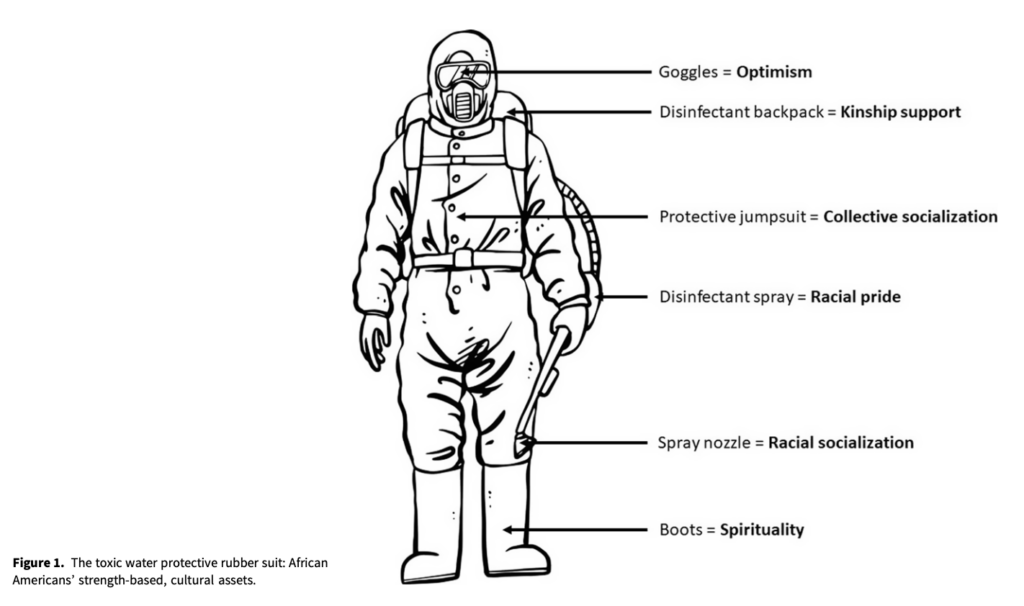Critical examination of resilience and resistance in african american families: Adaptive capacities to navigate toxic oppressive upstream waters
AUTHORS
ABSTRACT

African American families navigate not only everyday stressors and adversities but also unique sociocultural stressors (e.g., “toxic upstream waters”like oppression). These adverse conditions are consequences of the historical vestiges of slavery and Jim Crow laws, often manifested as
inequities in wealth, housing, wages, employment, access to healthcare, and quality education. Despite these challenges, African American families have developed resilience using strength-based adaptive coping strategies, to some extent, to filter these waters. To advance the field of
resilience research, we focused on the following questions: (1) what constitutes positive responses to adversity?; (2) how is resilience defined conceptually and measured operationally?; (3) how has the field of resilience evolved?; (4) who defines what, when, and how responses are
manifestations of resilience, instead of, for example, resistance? How can resistance, which at times leads to positive adaptations, be incorporated into the study of resilience?; and (5) are there case examples that demonstrate ways to address structural oppression and the
pernicious effects of racism through system-level interventions, thereby changing environmental situations that sustain toxic waters requiring acts of resilience to survive and thrive? We end by exploring how a re-conceptualization of resilience requires a paradigm shift and new methodological approaches to understand ways in which preventive interventions move beyond focusing on families’ capacity to navigate oppression and target systems and structures that maintain these toxic waters.